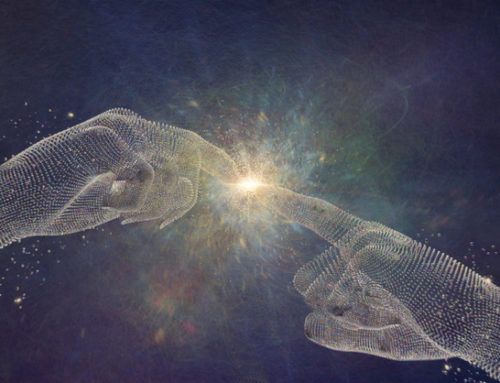Among the soaring spires of Oxford, a professor by the name of Richard Dawkins is “standing up” for the cause of atheism. Dubbed by Time Magazine as “The New Atheists”, Dawkins, Sam Harris and their friends, who refer to themselves and their followers as “Brights”, decry religion, along with its “outlandish hopes and inexplicable beliefs”, in favor of sheer rationality.
So what’s new about the “New Atheism”?
Not much, except that now these scholars are calling upon the bland and the semi-committed in the churches to jump off the fence on their side since, in their view, religion is, at best, irrational and, at worst, a mask for hatred and division in the human family.
There are, of course, lots of arguments to level against atheism. Rejections of God assume that only that which is measurable and observable is true. Scientific method becomes its own god, and the idea that some things can be real but not provable is dismissed as ludicrous.
While I deeply appreciate the importance of intellectual thought and the wellspring on knowledge that comes from scientific research, the mind has its limits, and life lived strictly within those limits is devoid of wonder and awe. Such a view is to settle for less than who we are, to miss the essential part of our humanity, which includes what we might call the spark of the divine.
Pascal put his finger on it when he said, “the heart has its reasons, that reason knows nothing of.”
Having said all that, I have another reaction to atheism, and it’s disconcerting: I wonder if we religious folks haven’t been at least partially responsible for their lack of belief. C.S. Lewis (also of Oxford) used to ask his atheist friends, “Tell me about the God you don’t believe in. It may be that I don’t believe in that God either.”
You say you don’t believe in God? Which God? The God who spun the whirling planets into space and yet loves each person as a unique reflection of the divine image? Or do you reject the gods of hatred, prejudice, retribution and violence that too many of your friends seem to worship?
What god are you rejecting?
I must be honest and admit that more than one professing atheist has come to their conclusion because of believers they don’t want to be like, who presented a god they wanted no part of. This reminds me of Dallas author Dave Burchett, who wrote the book “When Bad Christians Happen to Good People”. The title speaks for itself; we know exactly what he’s talking about.
Someone recently passed along a quote that elucidates: “To judge God by how ‘Christians’ act is like going to a kindergarten orchestra concert and come away saying that Beethoven was a terrible composer.”
Author Ann Rice recently announced that she was no longer going to call herself a Christian. It wasn’t that she didn’t believe anymore — she just didn’t want to be identified with the judgmentalism and bigotry she too often observed in people who call themselves Christian.
For me, I’m going to hang in there. But I’m not ready to condemn her for her decision. After all, I wonder what Jesus would say?
Blair Monie is senior pastor of the Preston Hollow Presbyterian Church. The Worship section is a regular feature underwritten by Advocate Publishing and the churches listed in our magazine. For information about helping support the Worship section, call 214.560.4202.






